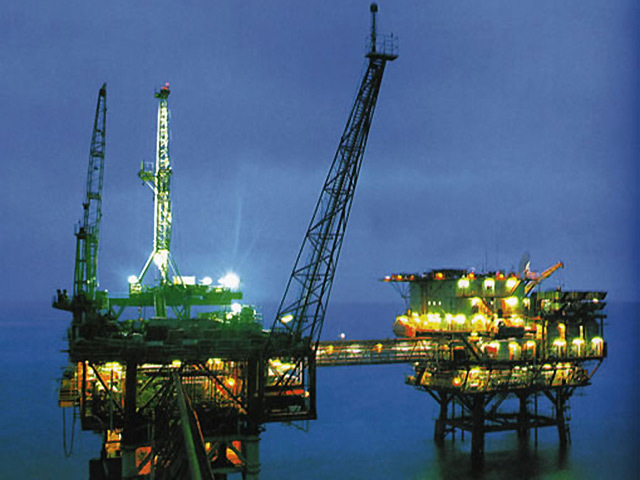
Two boats arrived in Vietnam to collect Chinese citizens as Vietnamese authorities thwarted anti-China protests after violent demonstrations resulted in two deaths and damage at factories.
The Chinese passenger ships reached the central Vietnamese port of Vung Ang this morning, Duong The Cuong, head of the port in Ha Tinh province, said by phone. Each ship can carry almost 1,000 passengers, he said. More than 3,000 Chinese nationals had already been brought home as of May 17, China’s Foreign Ministry said yesterday, with more than 290 flown to Chengdu.
Security forces in Vietnam’s major cities yesterday deterred people from protesting the placement of an oil rig in disputed waters off Vietnam’s coast after the government allowed unprecedented rallies that drew several thousand people on May 11. The anti-China attacks on foreign-owned factories last week also left about 140 injured, halting production lines and causing Taiwanese and other workers to flee the country.
China’s move to send ships to pick up its workers “could have been an overreaction,” said David Koh, an independent consultant and former senior fellow at the Institute for Southeast Asian Studies in Singapore who has studied Vietnam for more than 20 years.
“Whether it is purposely done, intended as a political statement or not, that’s very hard to tell,” Koh said. “The signal could actually be for the Chinese citizens as well, to tell them that the Chinese state does care for them.”
Vietnam authorities, worried that uncontrolled demonstrations could lead to instability and harm the economy, prevented planned protests over the weekend as China sought to shift the spotlight to Vietnam’s lack of order, said Le Hong Hiep, a lecturer at Vietnam National University in Ho Chi Minh City.
“The government is careful not to let the anti-China demonstrations cause collateral damage,” he said by phone. “Vietnam needs to assure China that it will protect its citizens. China is portraying itself as a victim and portraying the Vietnamese government as a source of tension.”
Some Chinese travel agencies have suspended Vietnam tour services after the protests, China’s official Xinhua News Agency reported, with Ctrip.com advising customers against Vietnam trips and refunding customers who have already booked tours.
Taiwan’s foreign minister is urging Vietnam to compensate companies that were attacked. China called on Vietnam to protect the lives and property of Chinese nationals and organizations in the country.
A total of 224 Taiwanese companies were damaged in the protests, with 18 set on fire, according to Taiwan’s Ministry of Economic Affairs. Airlines arranged 1,682 seats to fly passengers out of Vietnam today, with a further 1,823 tomorrow, Taiwan’s Civil Aeronautics Administration said yesterday in a statement. Thousands of workers at foreign-invested companies in Vung Ang Industrial Park, the scene of one of the worst riots, have returned to work, Ha Tinh Provincial Industrial Park Management Board said today on its website.
Vietnam’s government said order has been restored. Prime Minister Nguyen Tan Dung, in a mobile-phone text message sent to Vietnamese yesterday, urged citizens to “display patriotism peacefully,” refrain from unlawful protests and “help the government to keep social order and security.”
Three hundred protesters will soon be prosecuted, Vietnamese authorities said May 18. Protesters damaged the foreign-owned factories during violent demonstrations in the southern province of Binh Duong and in central Vietnam.
Riot police are patrolling the Vietnam Singapore Industrial Park in Binh Duong province, where protesters attacked factories. Hundreds of security forces barricaded and guarded areas around China’s embassy in Hanoi and consulate in Ho Chi Minh City yesterday. As many as 100 people were surrounded by security after attempting to protest in Ho Chi Minh City, said Truong Thi Nguyen Thao. The group’s leaders were taken away, said Thao, who witnessed the aborted demonstration.
The Binh Duong government will exempt protest-damaged companies from land rental charges, Vietnam’s official state television reported yesterday, citing Le Thanh Cung, chairman of the provincial People’s Committee.
The resumption of operations by companies including Formosa Chemicals & Fibre Corp. and China Steel Corp. have eased some fears that the riots would crimp global supply chains and hurt the Southeast Asian nation’s economic growth.
The country’s benchmark VN Index gained 0.3 percent as of 10:33 a.m. local time today, reversing an early decline. The index has dropped about 13 percent from this year’s peak on March 24.
“The concern about Chinese nationals is quite localized,” said Ben Reichel, executive director of Australian-listed Donaco International Ltd., when asked about evacuations of Chinese from Vietnam.
Donaco operates a hotel and casino in the Vietnamese town of Lao Cai, on the border with China, and yesterday announced a soft opening for an expansion. Almost all of the casino’s clients are Chinese, according to Reichel.
“Our guys on the ground in Lao Cai have reported no concerns at all,” Reichel said by phone from Hong Kong. “Chinese players are coming across the border quite freely. We had a soft opening yesterday and it was very well attended.”
The standoff in the South China Sea near the oil rig continues, with Chinese and Vietnamese boats in the area and Vietnam demanding that China withdraw the rig.
“I would like to take this opportunity to apologize to Chinese people working in Vietnam in general, and Taiwanese and also Koreans and Japanese,” said Tran Nghia Binh, a securities company employee in Ho Chi Minh City, who came to the center of the city yesterday to see if there would be any protests against the Chinese rig.’’
“I am very ashamed” as a Vietnamese of the events that took place in Binh Duong, Binh said. Still, “we cannot stop demonstrating in a peaceful way just because of some riots.”